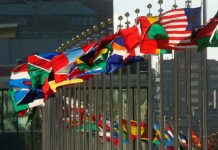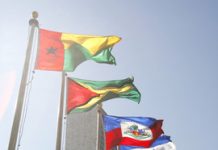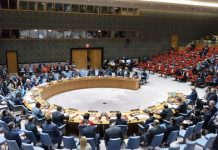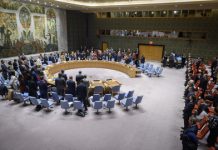The report details how this debt crisis is jeopardising progress aimed at ending AIDS in Sub-Saharan African countries, which account for a significant majority of people living with HIV globally – 25.9 million people of the nearly 40 million total.
If debt payments and stifled budgets are unaddressed in the next three to five years, countries will be “under-resourced to fund their HIV responses,” according to the UN agency’s report.
Further data reveals that “the region’s success in having reduced new HIV infections by 56 per cent since 2010 will not be sustained if fiscal space is constrained.”
Paying back sovereign debt now exceeds half of government revenue in Angola, Kenya, Malawi, Rwanda, Uganda, and Zambia.
UNAIDS said that even after debt relief measures, Zambia will still be handing over two-thirds of its budget for debt servicing between 2024 and 2026.
UNAIDS Executive Director Winnie Byanyima said that “public debt needs to be urgently reduced and domestic resource mobilisation strengthened to enable the fiscal space to fully fund the global HIV response and end AIDS.”
Debt servicing
Ms. Byanyima noted that global health security is put at risk when countries are unable to meet healthcare needs due to debt payments.
This has been evident in Western and Central Africa as there has been a noticeable decline in HIV response spending since 2017.
A news release based on the report reveals that Western and Central Africa will need to mobilise $4.18 billion to fully fund the HIV response in 2024. “This will climb to $7.9 billion by 2030 unless efforts are scaled up today to stop new HIV infections.”
It was noted that $20.8 billion was allocated for the HIV response in 2022 in low and middle-income countries through different donations, but it was not enough to effectively finance the HIV response.
To fully respond to HIV needs in 2024, Eastern and Southern Africa needs $12 billion, which will escalate to $17 billion by 2030 unless new HIV infections decline.
Necessary measures
The UNAIDS report says sub-Saharan African countries need to strengthen their tax systems and see an increase in financial donations to garner more domestic resources to effectively respond to their “pandemics.”
UNAIDS chief, Ms. Byanyima said, “World leaders cannot let a resource crunch derail global progress to end AIDS as a public health threat by 2030.”
Youth activists heading to New York
The UNAIDS chief said that young people are playing an active role in driving the progress made in the HIV response.
UNAIDS has partnered with two social media influencers living with HIV from Kenya and South Africa to attend the Summit of the Future and the UN General Assembly meetings in New York to urge leaders to invest in health systems and services that will support young people living with HIV.
Jerop Limo, the young Kenyan HIV activist, said, “I want leaders to leave New York knowing that we are not beneficiaries, we are equal rights holders.”
“We want meaningful and ethical engagement of adolescents and young people in all spaces of the AIDS response,” she continued.
South African advocate, Ibanomonde Ngema, said the meetings will not be enough to end AIDS – solutions need to be involved.
Young people living with HIV play a critical role in the fight against AIDS in communities.
Include us in the conversation
“The world can only benefit when young people are included in the global HIV response,” Ms. Ngema said. “No conversation about HIV should take place without us, from policy to practice in communities.”
As young people living with HIV also face stigma and discrimination, including from doctors, they will be lobbying world leaders at the General Assembly to “uphold the human rights of young people as key to ending AIDS as a public health threat.”
Source of original article: United Nations (news.un.org). Photo credit: UN. The content of this article does not necessarily reflect the views or opinion of Global Diaspora News (www.globaldiasporanews.net).
To submit your press release: (https://www.globaldiasporanews.com/pr).
To advertise on Global Diaspora News: (www.globaldiasporanews.com/ads).
Sign up to Global Diaspora News newsletter (https://www.globaldiasporanews.com/newsletter/) to start receiving updates and opportunities directly in your email inbox for free.






























